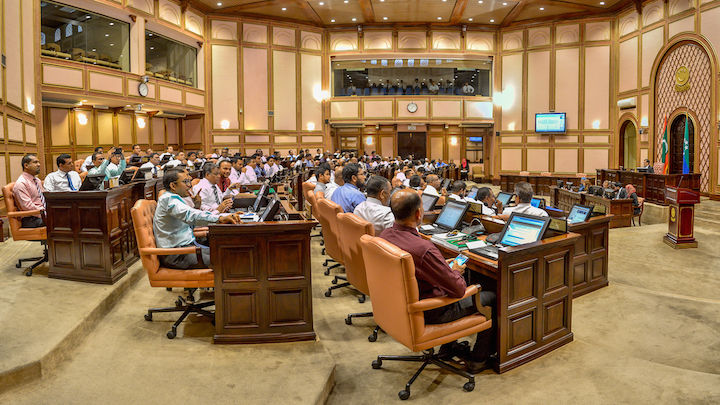Street protests could be labeled terrorism by new bill, contends MDP
In a document listing issues of concern with the draft legislation the MDP argued that the definition of terrorism is too broad and could be used as a catch-all provision.

11 Aug 2015, 09:00
The main opposition Maldivian Democratic Party (MDP) has raised concern over the broad definition of terrorism and restriction of fundamental rights in new anti-terrorism legislation currently before parliament.
In a document listing issues of concern with the draft legislation – to be shared with the parliament’s national security committee, which is reviewing the bill – the MDP noted that disruption of public services is considered an act of terrorism in the proposed law.
Disruption to traffic caused by street protests in Malé could therefore be interpreted as terrorism if the law is passed, the party warned.
“The bill states that those who organise and carry out such an activity and those participate or encourage it will be criminalised under a terrorism offence,” the MDP said.
Become a member
Get full access to our archive and personalise your experience.
Already a member?
Discussion
No comments yet. Be the first to share your thoughts!
No comments yet. Be the first to join the conversation!
Join the Conversation
Sign in to share your thoughts under an alias and take part in the discussion. Independent journalism thrives on open, respectful debate — your voice matters.




